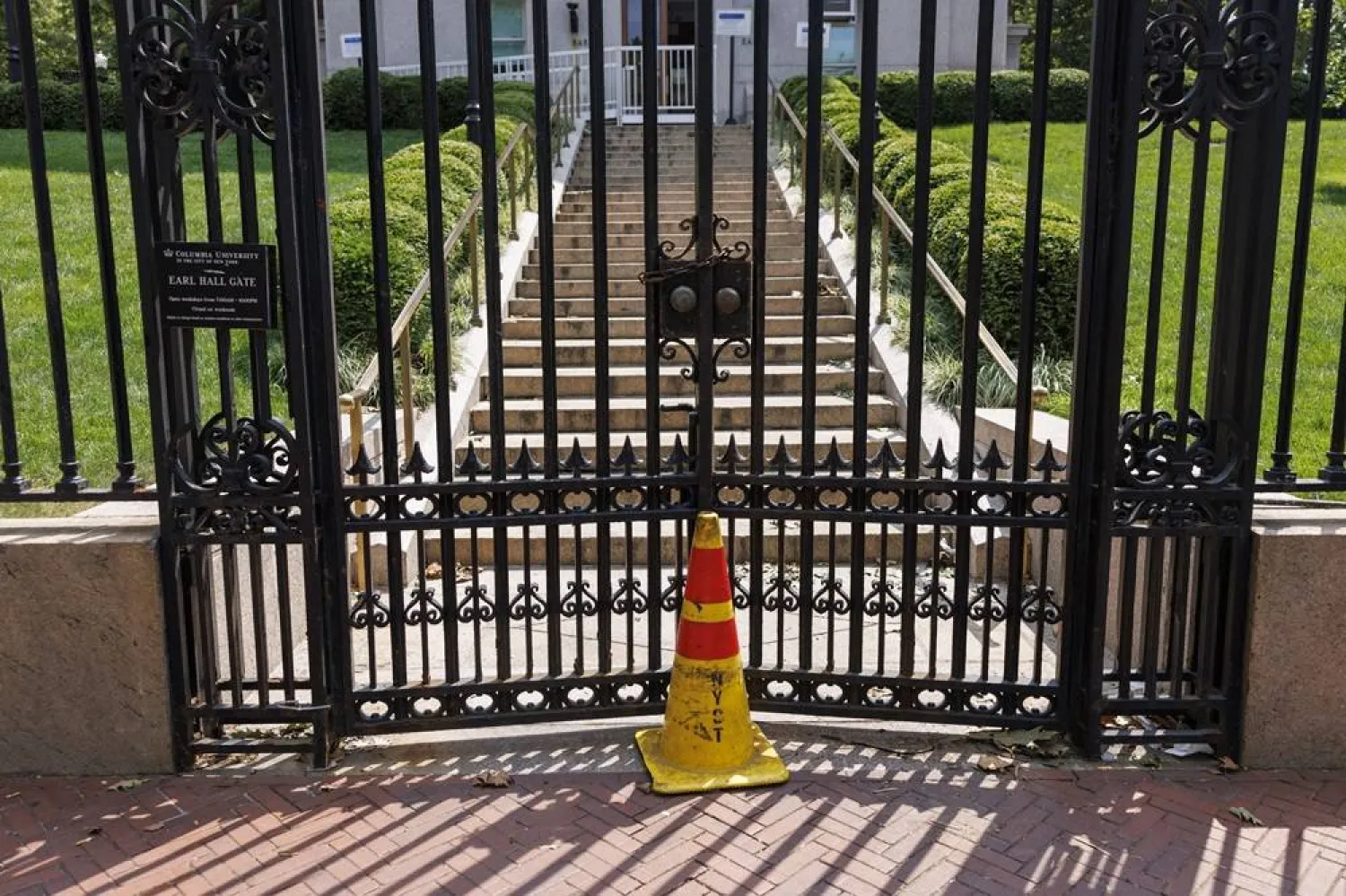As students return to colleges across the United States, administrators are bracing for a resurgence in activism against the war in Gaza, and some schools are adopting rules to limit the kind of protests that swept campuses last spring.
While the summer break provided a respite in student demonstrations against the Israel-Hamas war, it also gave both student protesters and higher education officials a chance to regroup and strategize for the fall semester.
The stakes remain high. At Columbia University in New York, where the wave of pro-Palestinian tent encampments began, President Minouche Shafik resigned Wednesday after coming under heavy scrutiny for her handling of the demonstrations. Her resignation came just days after the school confirmed that three deans had resigned after officials said they exchanged disparaging texts during a campus discussion about Jewish life and antisemitism.
Some of the new rules imposed by universities include banning encampments, limiting the duration of demonstrations, allowing protests only in designated spaces and restricting campus access to those with university identification. Critics say some of the measures will curtail free speech.
At Harvard University, a draft document obtained by the student newspaper over the summer showed the college was considering prohibitions on overnight camping, chalk messages and unapproved signage.
Many student protesters in the US vow to continue their activism, which has been fueled by Gaza's rising death toll, which surpassed 40,000 on Thursday, according to the territory’s Health Ministry.
Tensions have run high on college campuses since Oct. 7, when Hamas fighters assaulted southern Israel and killed 1,200 people, most of them civilians, and took about 250 hostages.
Mahmoud Khalil, a lead negotiator working on behalf of Columbia student protesters, said he fully expected protests, including possible encampments, to resume in the fall.
“As long as Columbia continues to invest and to benefit from the Israeli apartheid, the students will continue their activism on campus in so many different ways,” he said.
He said about 50 students still face discipline over last spring’s demonstrations after a mediation process that began earlier in the summer stalled. He blamed the impasse on Columbia administrators.
“The university loves to appear that they’re in dialogue with the students. But these are all fake steps meant to assure the donor community and their political class,” said Khalil, a graduate student at Columbia’s School of International and Public Affairs.
The university did not immediately respond to a request for comment Thursday.
The Ivy League school in upper Manhattan was roiled earlier this year by student demonstrations, culminating in scenes of police officers with zip ties and riot shields storming a building occupied by pro-Palestinian protesters. Similar protests swept college campuses nationwide, with many leading to violent clashes with police and more than 3,000 arrests.
Many of the students who were arrested during police crackdowns have had their charges dismissed, but some are still waiting to learn what prosecutors decide. Many have faced fallout in their academic careers, including suspensions, withheld diplomas and other forms of discipline.
Shafik was among the university leaders who were called for questioning before Congress earlier this year. She was heavily criticized by Republicans who accused her of not doing enough to combat concerns about antisemitism on the Columbia campus.
She announced her resignation in an emailed letter to the university community just weeks before the start of classes on Sept. 3. The university on Monday began restricting campus access to people with Columbia IDs and registered guests, saying it wanted to curb “potential disruptions” as the new semester draws near.
“This period has taken a considerable toll on my family, as it has for others in the community,” Shafik wrote in her letter. “Over the summer, I have been able to reflect and have decided that my moving on at this point would best enable Columbia to traverse the challenges ahead.”
Columbia’s Board of Trustees announced that Katrina Armstrong, the CEO of Columbia University Irving Medical Center, will serve as interim president.
Pro-Palestinian protesters first set up tent encampments on Columbia’s campus during Shafik’s congressional testimony in mid-April, when she denounced antisemitism but faced criticism for how she responded to faculty and students accused of bias.
The school sent in police to clear the tents the following day, only for the students to return and inspire a wave of similar protests at campuses across the country as students called for schools to cut financial ties with Israel and companies supporting the war.
Even after the protests were cleared, Columbia decided to cancel its university-wide commencement ceremony, instead opting for a series of smaller, school-based ceremonies.
The campus was mostly quiet this summer, but a conservative news outlet in June published images of what it said were text messages exchanged by administrators while attending a May 31 panel discussion titled “Jewish Life on Campus: Past, Present and Future.”
The officials were removed from their posts, with Shafik saying in a July 8 letter to the school community that the messages were unprofessional and “disturbingly touched on ancient antisemitic tropes.”
Shafik’s critics were quick to cheer the end of her tenure, one of the shortest in school history.
Other prominent Ivy League leaders have stepped down in recent months, in large part due to their response to the volatile protests on campus.
University of Pennsylvania President Liz Magill resigned in December after less than two years on the job. She faced pressure from donors and criticism over testimony at a congressional hearing where she was unable to say under repeated questioning that calls on campus for the genocide of Jews would violate the school’s conduct policy.
And in January, Harvard University President Claudine Gay resigned amid plagiarism accusations and similar criticism over her testimony before Congress.









